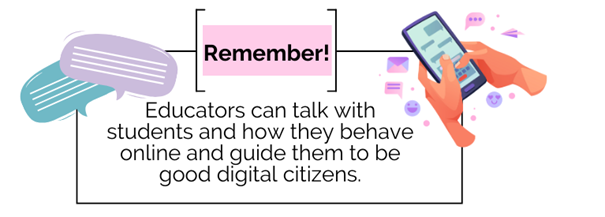Digital Citizenship refers to the ability to engage positively, critically and competently in the digital environment, drawing on the skills of effective communication and creation, to practice forms of social participation that are respectful of human rights and dignity through the responsible use of technology.

Digital citizenship is often related to the way in which we interact, participate, and engage in our local, national and global communities through digital technology and platforms. Common features of definitions of digital citizenship include nine themes:
- Digital Access
- Digital Commerce
- Digital Communication and Collaboration
- Digital Etiquette
- Digital Fluency
- Digital Health and Welfare
- Digital Law
- Digital Rights and Responsibility
- Digital Security and Privacy
Educational programmes
Netsafe have lots of resources to help students understand using the internet safety and protecting their digital brand.
The Institute for Strategic Dialogue have developed a toolkit for individuals working with young people in the digital citizenship and online safety space.
The Council of Europe have a number of online courses available for free for educators on the topic of digital citizenship.
Ministry of Education have eLearning modules that cover digital citizenship, digital fluency and online etiquette.
Digital citizenship is dynamic, and educators can adapt how they teach the topic based on their schools culture and context. The National Library have a wealth of resources all about digital citizenship.
Videos
it is important for our students to become safe and successful digital citizens. Common Sense Media explain the importance and value of teaching digital citizenship